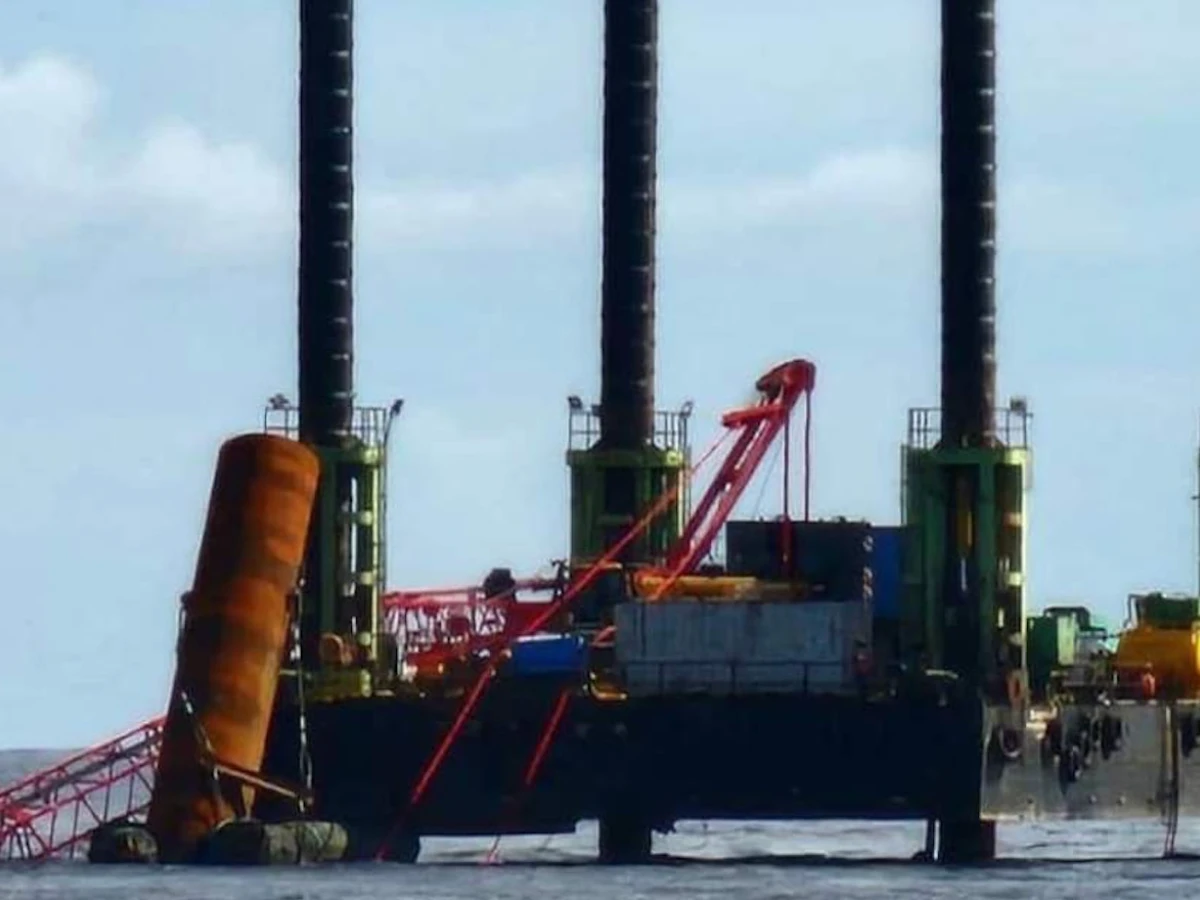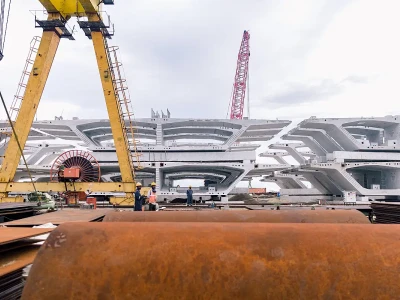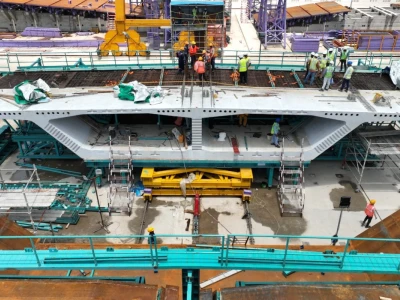
Questions over Thilamale Bridge, but far from reality
In areas where floating platforms cannot be used, he said, work has been planned to be continued by building temporary walkways or jetties.
Top Stories
By
Ahmed Naif
The $500 million Greater Male' Connectivity Project (GMCP), which will connect Male, Villimale, Gulhifalhu to Thilafushi (Thilamale’ Bridge), awarded to India's Afcons Ltd, has raised doubts among the public. First, the main reason is that the project is being executed by an Indian company. In the past, Indian companies have been facing problems of non-completion of projects in the Maldives, based on time and poor quality. Another reason is the high number of accidents during the recent bridge project.
A Self Evaluating Platform (SEP) that was used to build the bridge ran adrift Villimale reef and wrought damages to the reef site. Monday’s incident took place when a crane used to install the pillars of the bridge at Villimale end fell into the sea. With every such incident, concerns are raised on social media. It was the same on Monday.
According to some, the high number of such incidents reflects the poor quality of their bridge construction. Hence, they demanded that the project should not be allowed to work further and be stopped now. Some have called to change the contractor. People also question if Afcons is capable of building bridges.
"Can this happen at this rate? Not worthy to even say it's a $700 million project," a member of the public asked on Twitter.
Another said, "Does the government monitor the process of such a big project? At this level, I’m scared to go on that bridge."
Quality assurance: 'Don't doubt that'
Despite the public's concerns and questions being raised about the bridge project, the assurance given by the bridge office set up by the Ministry of Housing to facilitate the construction of the bridge is that every work of the project is being closely monitored.
An official who spoke at the bridge office said:
-
No construction arm of the bridge is allowed without checking, whether it be installing a bridge-related pole or pouring concrete
-
An independent consultant has been appointed to check if Afcons is complying with the norms set by the housing ministry
-
They are Arup Consultants, who also served as advisors to Sinamale' Bridge project
"They are consulting all the reports submitted by Afcons, including observing things and monitoring them on site. No work can be done unless the consultant takes into account what needs to be looked into and approved. Therefore, there is no question of the level of work on the bridge," the official said.
He said that since the bridge is a huge take-on, there is always the possibility of some incidents in it. There were things that were not anticipated in advance, he said. Therefore, he pointed out that incident that occur within a project of the magnitude has no relation to the quality of work being done.
"Incidents happen while undertaking a big project, but it is not because of poor quality. We are also taking timely steps to reduce accidents. We have not observed any reduction in work quality," the official said.
'Project implementation model may cause delay'
An engineer, who spoke on condition of anonymity, said that the use of floating tools to build the bridge does not degrade the quality of the bridge. However, since the Thilamale Bridge is across seas, if floating equipment is to be used, work will have to be halted whenever the sea is rough, he said.
"There will be delays if floating equipment is used due to the weather conditions in the country. So, there can be delays in speed," said the expert.
Another person with knowledge of the matter said that the China Communications Construction Company Ltd (CCCC) company decided to build a temporary walkway during the construction of the Sinamale’ bridge project because that was the easier and faster way to work.
"The temporary walkway ensured that the work didn't stop until the weather was very bad. Again, a lot of things were fast- tracked for them," he said.
He did say that building bridges using floating platforms is a global practice in bridge construction. No one can say it's a new or bad method.
No work can be done unless the consultant takes into account what needs to be looked into and approved
Officials at the bridge office said they are yet to identify any delay in the construction of the bridge because of the use of floating platforms. In areas where floating platforms cannot be used, he said, work has been planned to be continued by building temporary walkways or jetties.
"The current method does not show any delay in speed," the official said.
Giving details of the work on the bridge, he said:
-
The piling work of pillars in the Male area has been completed
-
Test pile work completed on two underwater pillars have been completed
-
Work on permanent pillars installed at sea will begin soon
-
Work has begun to reclaim the area from Villimale for the installation of pillars
-
Changes have been made in the area related to the bridge in Thilafushi; work is also underway in Gulhifalhu
"There is a lot of work to be done. The pillars installed in the sea will also be visible to all in the near future," the official said.




